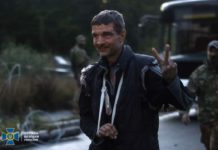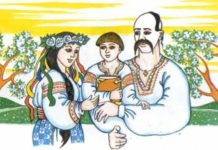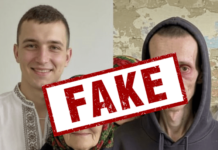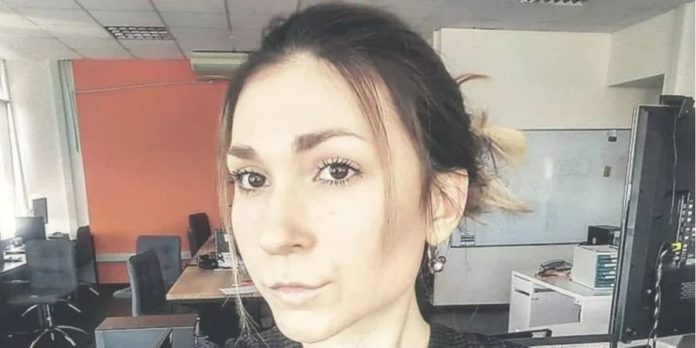Ukrainian journalist Victoria Roshchyna, who went missing while reporting from Russian-occupied territories, has been confirmed dead in Russian captivity under highly suspicious circumstances. Her mutilated body was returned to Ukraine labeled as an “unidentified male,” missing critical organs — a revelation that has drawn global outrage.
These harrowing details emerged from a joint investigation titled Project Victoria, published on April 29, 2025, by Ukrainska Pravda in collaboration with Forbidden Stories, Reporters Without Borders, and other international media organizations.
Shocking Findings of the Investigation
Roshchyna’s body was delivered to Ukraine on February 14, 2025, tagged as case number 757 and marked with the cryptic term “СПАС.” Ukrainian experts believe this may refer to a supposed cause of death: “combined damage to coronary arteries.” However, a forensic examination in Ukraine revealed her body was missing several vital organs, including the brain, both eyes, and part of the trachea — suggesting a deliberate attempt to conceal the real cause of death.
Forensic pathologists determined that the body belonged to a female and was notably smaller and lighter than those of fallen Ukrainian soldiers returned in the same exchange. A DNA analysis commissioned by the Prosecutor General’s Office confirmed a 99% match with Victoria Roshchyna.
Ukrainian investigators found that the body had undergone an autopsy in Russia. An international expert told the investigative team that the removal of specific organs could indicate an attempt to hide physical evidence of asphyxiation or strangulation — suggesting that Roshchyna may have been killed by suffocation.
On April 24, 2025, the Prosecutor General’s Office announced that the body’s condition made it impossible to officially determine the cause of death.
Signs of Torture and Dehumanization
A separate investigation by Slidstvo.Info, alongside Reporters Without Borders, Suspilne, and Graty, revealed further disturbing details. According to forensic observations, Roshchyna had multiple stab wounds and her body weight had dropped below 30 kilograms at the time of death — consistent with prolonged physical abuse, starvation, or severe deprivation.
Sources familiar with the investigation suggest that she may have been subjected to extreme forms of torture, including beatings, forced confinement, psychological pressure, and deprivation of food and medical care. These practices are consistent with documented treatment of Ukrainian prisoners by Russian authorities in other cases.
Her treatment, experts say, was consistent with politically motivated torture and likely intended to extract information or force confessions — a gross violation of international humanitarian law.
Her Work Before Capture
Before her detention, Victoria Roshchyna had earned a reputation for fearless frontline reporting in cities like Mariupol, Melitopol, and Kherson. Often working solo in high-risk environments, she focused on documenting human rights abuses and civilian experiences under Russian occupation. Her dispatches were among the few firsthand reports coming out of occupied zones during the first months of the full-scale invasion in 2022.
On March 16, 2022, she was first detained by Russian security forces in Berdyansk. She was released six days later after being forced to record a video stating she had no complaints against the FSB.
Her Disappearance and Death
In August 2023, Roshchyna disappeared again while reporting in Russian-occupied areas. Her family filed a missing persons report in September, and in May 2024, Russia confirmed she was in custody.
On August 28, 2024, her father, Volodymyr Roshchyn, formally requested information from Russian authorities. He received a reply on October 10, dated October 2, stating that Victoria had died on September 19, 2024. She would have turned 28 just days later, on October 6.
Delayed Repatriation and Silence
Deputy Minister of Internal Affairs Leonid Tymchenko confirmed that her body had been returned as part of a February exchange. MP Yaroslav Yurchyshyn later stated that the case was kept confidential for a period to allow time for identification. However, Russia initially refused to hand over the body, and by November 4, Yurchyshyn reported that the Kremlin was deliberately stalling the repatriation process.
According to HUR intelligence officer Andriy Yusov, Victoria had been placed on approved exchange lists and was moved to Lefortovo prison as part of preparations for her release — making the sudden announcement of her death even more suspicious.
Global Reaction and Call for Justice
International press freedom organizations, including Reporters Without Borders and the Committee to Protect Journalists, have condemned Russia for its treatment of Roshchyna and are calling for an international investigation. Her case has been formally submitted to the UN Human Rights Council as part of a broader effort to document and prosecute war crimes against journalists.
Victoria’s death has become a powerful symbol of the dangers faced by Ukrainian reporters documenting Russia’s war of aggression — and of the brutality of captivity under Russian control.
Final Reflection
Victoria Roshchyna would have celebrated her 28th birthday just weeks after the date listed on her death certificate. Instead, her family was left identifying a body stripped of dignity and truth. Her legacy now serves as a haunting reminder of the risks journalists take to reveal injustice — and the brutal lengths authoritarian regimes go to silence them.
























